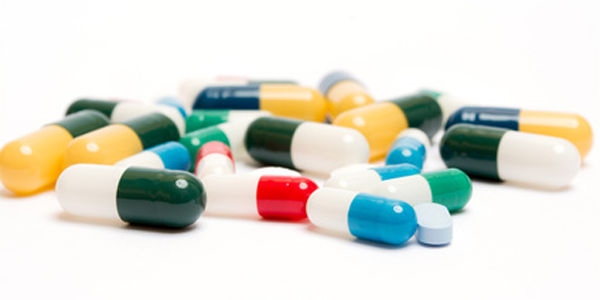Acid blocking medications, specifically proton pump inhibitors, or PPIs, are well-known causes of nutrient deficiencies.
What does a PPI do? It blocks the acid in your stomach.
In order to absorb the nutrients from your food and your supplements, you need to have a strong acid environment in your stomach.
Without strong stomach acid, most nutrients end up—well, you know, ‘down the drain’—instead of in your bloodstream.
What a waste.
These are all proton pump inhibitors:
- omeprazole (Prilosec)
- rapid release omeprazole (Zegerid)
- esomeprazole (Nexium)
- lansoprazole (Prevacid)
- dexlansoprazole (Dexilant)
- rabeprazole (Aciphex)
- pantoprazole (Protonix)
Are you taking any of these medications? If so, has your doctor warned you about the dangers of PPIs?
Long-term use of PPIs increases your risk of developing:
- food allergies
- infections of the digestive tract
- stomach cancer
- colon cancer
- osteopenia (low bone density)
- osteoporosis
- fractures of the hip, spine, forearm, and wrist
- pneumonia
- acute kidney failure
Note: “Long-term use” can be as little as 90 days on a PPI!
Here’s the research (a partial list):
- According to a Danish study, the occurrence of stomach cancer is directly related to the amount of PPI prescription refills and the length of use. (Poulsen AH et al, 2009)
- Women over age fifty who take PPIs for more than a year have a 44 percent increased risk of hip fracture. (Geller JL, 2007)
- Long-term PPI therapy, particularly at high doses, is associated with an increased risk of hip fracture by 245 percent. (Geller JL, 2007)
- Women’s Health Initiative study showed a modest association between PPI use and increased risk of spine, forearm and wrist fracture. (Gray SL et al, 2010)
- In 2010 the FDA revised the labeling of all PPIs to include the increased risk of fractures of the hip, wrist, and spine.
- NSAIDs (nonsteroidal anti-inflammatory drugs) are the number one cause of acute kidney failure. PPIs are the number two cause. (Raza MN et al, 2012)
PPIs and Nutrient Deficiencies
Without proper stomach acid levels, the ability to properly digest and absorb nutrients is significantly impaired. Specifically:
- Calcium deficiency—With a PPI, proper digestion of calcium plummets from 96 percent down to 23 percent. (O’Connell et al 2005)
- B12 deficiency—PPI use (past and present) is significantly associated with the presence of B12 deficiency. (Lam JR et al 2013)
- Magnesium deficiency—All PPIs are associated with magnesium depletion. Esomeprazole (Nexium) had the lowest risk, and pantoprazole (Protonix) had the highest risk. The risk is higher in males and the elderly. Low calcium and low potassium are also commonly found, along with low magnesium, as a side effect of PPIs. (Luk CP et al, 2013)
- Iron deficiency—Iron malabsorption is especially affected in patients who are iron deficient before starting on a PPI. (Sharma VR, 2004)
Rebound Acidity
PPIs cause significant rebound acidity. This can happen within as little as three months after starting on a PPI.
This is why most people feel like they can never stop their PPI. As soon as they miss a dose or two, their stomach acidity increases dramatically and they feel significant burning, indigestion, and reflux, so they swallow down another PPI pill to stop the burn. And the cycle continues.
In fact, research shows that this rebound acid hypersecretion lasts from 8-26 weeks after long-term PPI use is stopped (“long-term use” being three months or more).
How to Safely Get Off Your PPI
To safely get off your PPI, follow these steps one by one.
- Ask your prescribing doctor about discontinuing your PPI.
- Find a Functional Medicine doctor to help you. He or she will help strengthen your stomach lining, reduce inflammation, and get your stomach to function normally again with proper diet, herbs, and nutrients (find the cause, fix the cause, so you stomach works normally again!) while your prescribing doctor slowly weans you off your PPI.
- Ask your prescribing doctor for the lowest PPI dose available.
- Ask your prescribing doctor if you can decrease your dose to an every-other-day dosage.
- Ask your prescribing doctor if you can then go to an every-third-day dosage.
- Ask your prescribing doctor to switch you to an H2 blocker if you are still having symptoms with acidity.
Remember: Rebound hyperacidity can last from 8 weeks to 26 weeks after discontinuing PPI use, so time and patience is required to get through this process!
One last thing…
Lastly, for those who want the latest information about stomach health from today’s leading experts I highly recommend investing in the Digestion Online Summit.

Dr. Carri Drzyzga, DC, ND – The Functional Medicine Doc
Find the Cause. Fix the Cause. Feel Normal Again!








